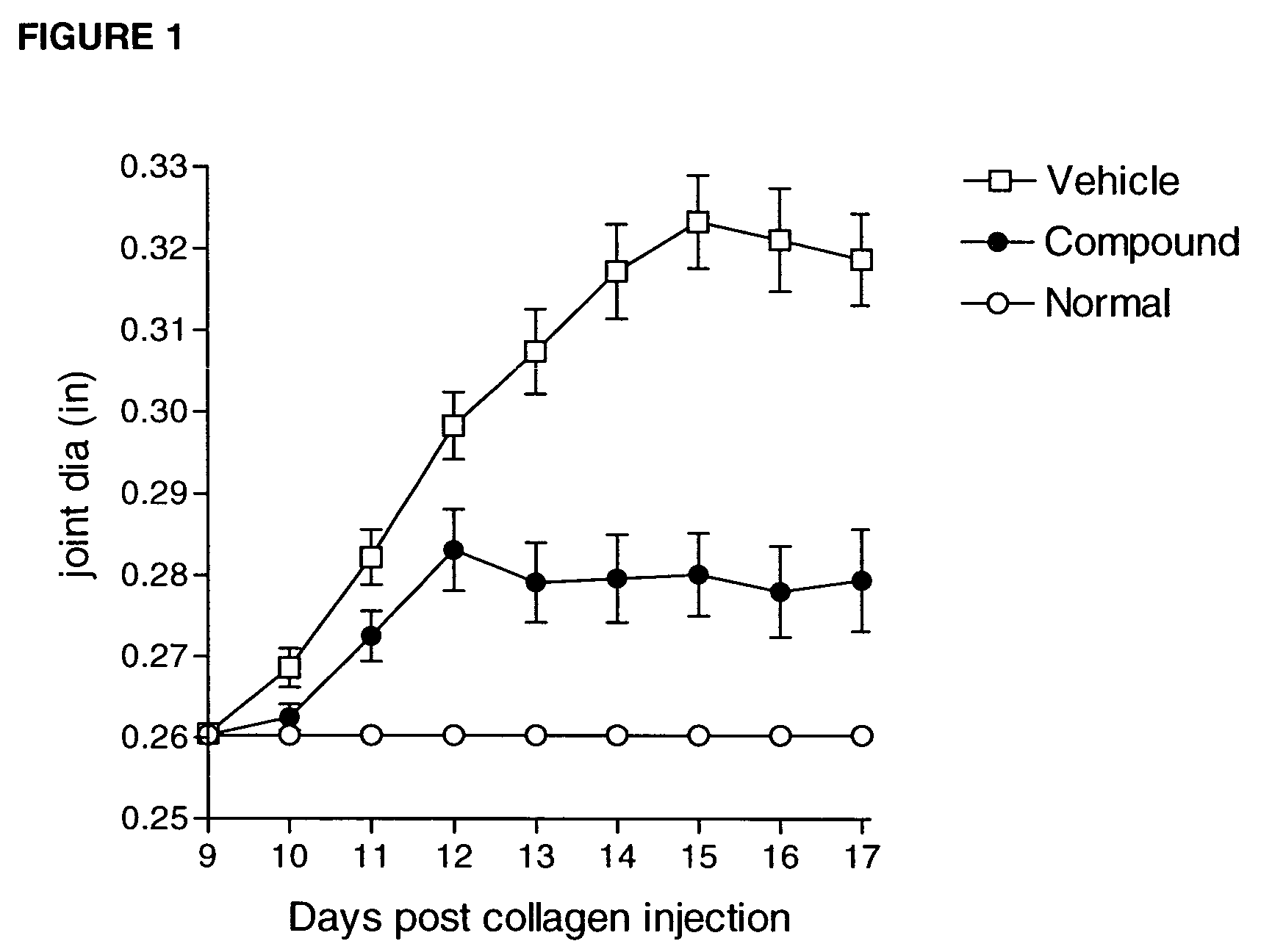Heteroaryl sulfonamides and CCR2
a technology of heteroaryl sulfonamide and ccr2, which is applied in the direction of biocide, drug composition, immunological disorders, etc., can solve the problems of severe degradation of lung function, reduced food intake, and impaired gas exchang
- Summary
- Abstract
- Description
- Claims
- Application Information
AI Technical Summary
Benefits of technology
Problems solved by technology
Method used
Image
Examples
example 1
2-Bromo-5-chloro-3-nitro-pyridine
[0521]
[0522]This compound was prepared according to the following literature procedure: zhou et al.; Bioorganic &Med. Chem., 9, 2061-2071 (2001).
example 2
2-Bromo-5-chloro-pyridin-3-ylamine
[0523]
[0524]2-Bromo-5-chloro-3-nitro-pyridine (11.87 g, 50 mmol) was dissolved in 100 mL ether. Tin(II) chloride dihydrate (56.4 g, 0.5 mol) was dissolved in 100 mL of concentrated hydrochloric acid and added drop wise over 15 minutes to the stirring ethereal solution of the nitro compound. The exothermic reaction brought the ether to boiling and it was allowed to evaporate off. After the addition was complete the reaction mixture was placed on a 50° C. oil bath and stirred for 30 minutes to boil of the remaining ether. The flask was then cooled on in an ice bath. The precipitate formed was collected and by filtration and dissolved in 100 mL of water. The pH was adjusted to 9-10 by the addition of concentrated ammonium hydroxide solution and the product was extracted with ethyl acetate (2×100 mL). The organic layer was washed with diluted ammonium hydroxide, water and brine and dried over Na2SO4 and the solvent was evaporated to afford 7.4 g of tan ...
example 3
General procedure A: Synthesis of 5-chloro-3-nitro-2-aryloxy-pyridines and 5-chloro-3-nitro-2-arylsulfanyl-pyridines
[0525]
[0526]A mixture of the appropriate hydroxyaryl or thioaryl (1.3 equiv), 2-bromo-5-chloro-3-nitro-pyridine (1 equiv) and K2CO3 (1.5 equiv) in DMF was heated at 80° C. overnight. The resulting mixture was cooled to room temperature, and diluted with water and CH2Cl2. The biphasic mixture was separated and the aqueous portion was extracted with CH2Cl2. The combined extracts were washed with saturated aqueous NaHCO3, brine and dried (Na2SO4). It was then filtered and filtrate was concentrated under reduced pressure and the product was purified by flash column chromatography on silica gel to provide desired product.
PUM
 Login to View More
Login to View More Abstract
Description
Claims
Application Information
 Login to View More
Login to View More - R&D
- Intellectual Property
- Life Sciences
- Materials
- Tech Scout
- Unparalleled Data Quality
- Higher Quality Content
- 60% Fewer Hallucinations
Browse by: Latest US Patents, China's latest patents, Technical Efficacy Thesaurus, Application Domain, Technology Topic, Popular Technical Reports.
© 2025 PatSnap. All rights reserved.Legal|Privacy policy|Modern Slavery Act Transparency Statement|Sitemap|About US| Contact US: help@patsnap.com



